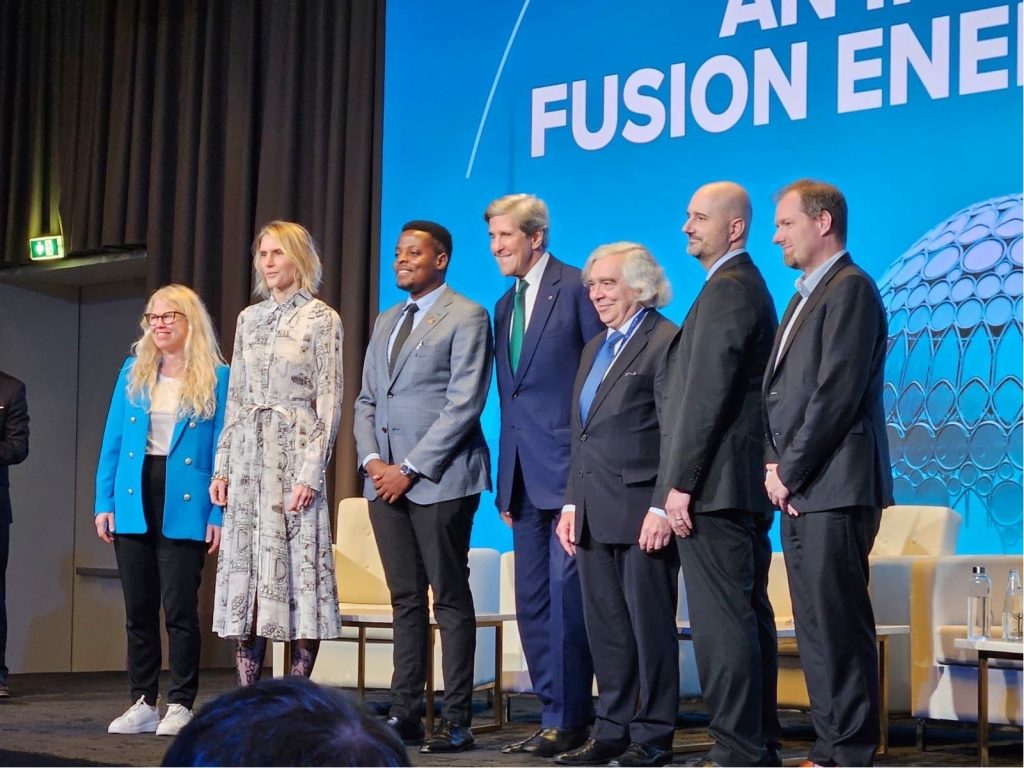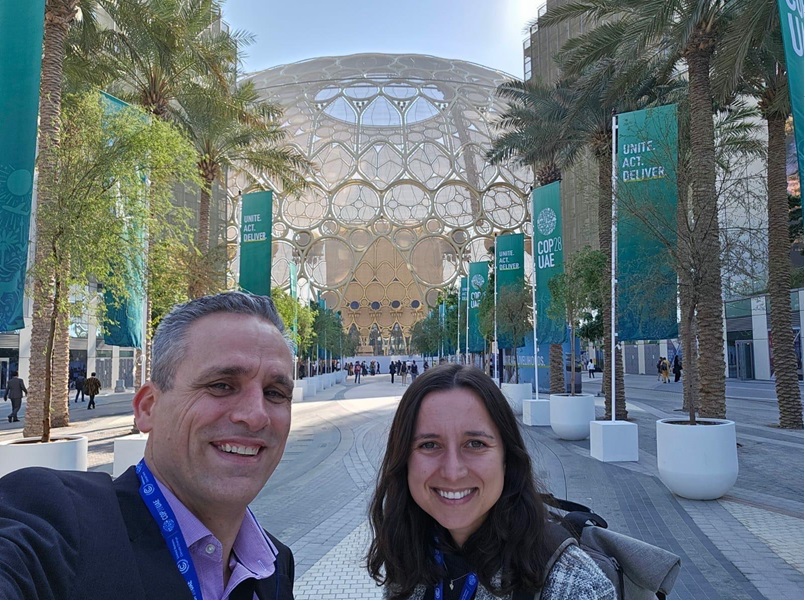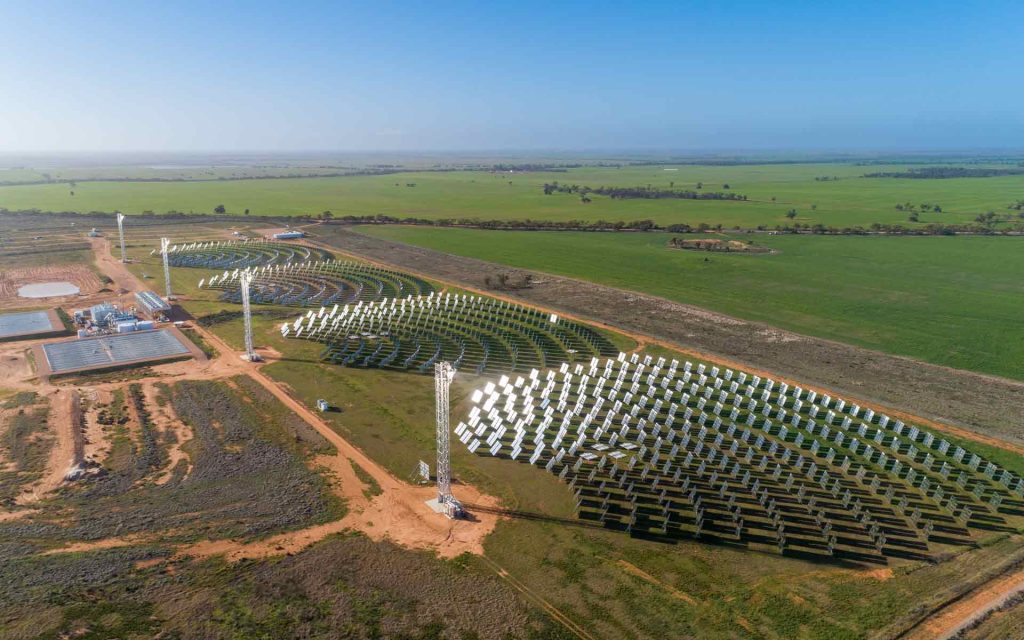Dispatch from Dubai: RayGen’s Richard Payne shares his ambition and commitment at COP28
Today at COP28 in Dubai, ARENA met with Richard Payne, CEO of RayGen. A leader in solar and storage, RayGen delivered the world’s largest next-generation long duration energy storage project in Australia and is developing similar projects across the globe.

Is this the first time you’ve attended a COP? How have you found it?
COP28 Dubai is my first and I’ve been really impressed with what I’ve seen. It’s fantastic to come to a place where everyone shares the same mission, they’re all striving to make a difference and set ambitious targets. There’s no argument around whether this climate issue is happening or not – everyone’s fully on board already. It’s only a question of how we tackle and solve the issue.
The other thing that I’ve loved is just seeing the diversity of people, all the different nations coming together. Everyone’s excited to be here and looking for opportunities to work together. It’s been inspiring.

What has been the highlight for you so far?
Certainly, seeing the tripling of renewable energy targets signed up for by more than 100 countries so far, with more to hopefully follow. That’s been great to see here in Dubai.
Other highlights have been seeing some of the initiatives and conversations around the support required for developing countries and emerging markets with the transition to renewable energy and climate mitigation. That’s critical with climate change, so it’s good to see a lot of action there.
What stand out events have you been able to attend so far?
The most eye-opening COP28 event was seeing John Kerry, former Secretary of State and US Special Presidential Envoy for Climate, at the Atlantic Council’s Global Energy Forum announcing and presenting a new international corporation strategy around nuclear fusion.
Seeing that make positive progress in the last few years and Kerry’s passion around the development of that new technology has been fantastic.
It’s also been enjoyable to see that calibre of people and their enthusiasm for innovation and technological advances. Ultimately, climate action will need a lot of new technologies around the world to actually complete the transition. Having such passionate and intelligent people working on this in parallel is awesome to see.
Have there been any takeaways or insights that have surprised you this week?
I think we already knew that we were behind where we need to be in terms of reducing emissions and to try and ‘keep 1.5 alive’. So far throughout the conference and through multiple different panels, events and sessions here in Dubai, we’ve seen that there is a risk that we’re going to miss that globally.
We must reduce emissions by 40% in the next six years, globally – that’s a big, big ask to keep that goal alive. There’s a deep understanding across the board that it needs to be done. It’s daunting, but people are still very, very ambitious in trying to achieve that.
But there’s hope there too. It’s been amazing to see certain countries that have already made huge strides towards these goals. I spent time in the Spanish Pavilion and could see that they’re made significant progress in tackling the problem.
What we’re seeing is that countries are not giving up – we’re saying no, we are ambitious and we are going to set these goals and hit them and keep that dream alive for 1.5.
That’s the sentiment around COP28 – there’s a lot of technology development and a lot of collaboration.
We’ve seen, for example, in the Australian Pavilion today, the Mission Innovation and CSIRO global panel on Catalysing a clean, green transition.
It was a great session for us to see it’s not just one country trying to develop everything in their own right; it’s spread across multiple countries all collaborating with the goal to deliver new technology. That’s fantastic. That’s what we should be doing more of and that’s what we’re seeing here.

What do you hope to get out of the rest of your time here at COP28?
I’m excited to see more on technology hyper-scaling, there’s a lot of sessions here that we’re keen to participate in, because that’s what RayGen also needs to achieve. We need to hyper-scale quickly.
I am very keen to see an outcome from COP28 in Dubai where we’re setting ambitious goals. It would be good to see a global commitment on elimination of fossil fuels by 2050. I realise that’s a challenge, but the science is very clear that we need to achieve that.
One of the other things that I’m keen to see more on is around the protection of the environment and forests. We’ve seen and talked a lot about carbon capture and storage, but we have the ultimate carbon capture storage technology in replanting trees. We need to plant millions and millions of trees, support biodiversity and protect the green spaces we want to be here in the future. I’d like to see more of what’s happening in that space in the remainder of my time at here at COP28.

ARENA